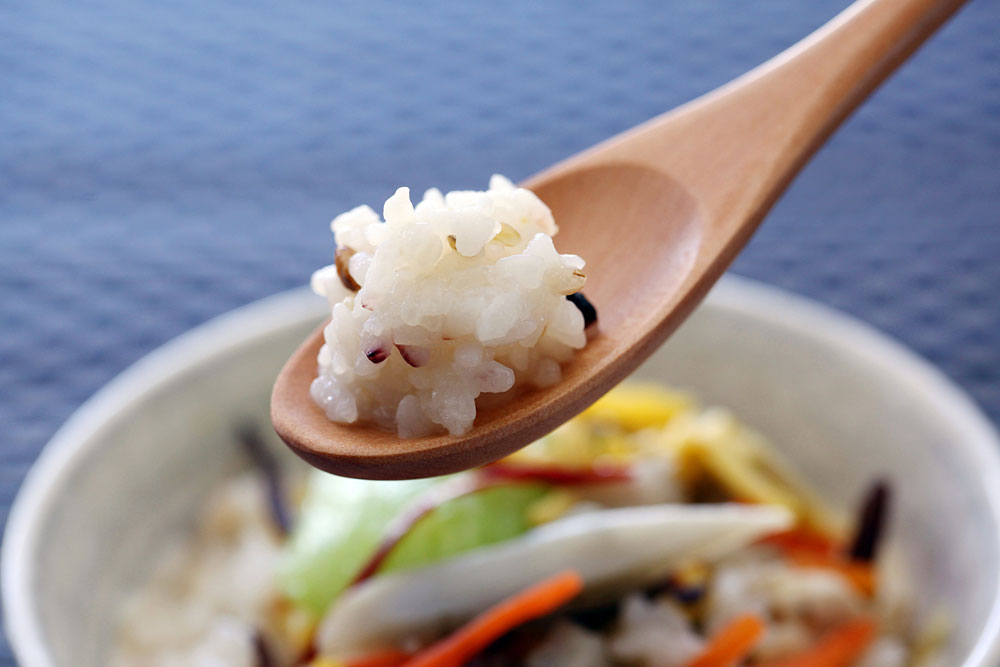6 foods that could fight lung cancer
Research talks about plenty of tips and food products that claim to prevent lung cancer; however, only a few mention foods that could help fight this condition. Since lung cancer is fatal, it is advisable to first consult a doctor before trying out any of the diets or foods.
Some of the foods that could help fight lung cancer are:
- Pears
Studies showed that phloretin, which is found in apples and pears, noticeably induced cell death in these cancer cells. Not only that, phloretin also enhanced the anticancer effect of cisplatin, which is a common chemotherapy drug used for those suffering from lung cancer.

Additionally, phloretin could also reduce fibrosis in the lungs. Green tea
Green tea has a key role in the prevention of lung cancer and is beneficial to those already suffering from this condition. One needs to keep in mind that green tea contains caffeine, so if someone is sensitive to it, they might want to go in for a caffeine-free variety. Also, skip the creamer, as dairy products could neutralize the compound which helps prevent the effects of cancer. Salmon
A diet rich in vitamin D could greatly benefit people who have lung cancer. Moreover, vitamin D deficiency could end up leading to many health problems.
Green tea has a key role in the prevention of lung cancer and is beneficial to those already suffering from this condition. One needs to keep in mind that green tea contains caffeine, so if someone is sensitive to it, they might want to go in for a caffeine-free variety. Also, skip the creamer, as dairy products could neutralize the compound which helps prevent the effects of cancer.
A diet rich in vitamin D could greatly benefit people who have lung cancer. Moreover, vitamin D deficiency could end up leading to many health problems.
Of all the minerals and vitamins in our food, vitamin D could be the hardest to get in dietary form. However, vitamin D is found in fatty fish such as herring, mackerel, and salmon. Ginger
Ginger contains a compound known as 6-shogaol , which has been proven to prevent lung cancer from developing and lower the risk of metastases cancer. Since the metastasizing of cancerous cells is the chief reason for fatalities for people with cancer, consuming ginger is important. Try eating ginger in a crystallized form or in the form of ginger tea. Carrots
Carrots are rich in chlorogenic acid, a phytochemical. In order for cancerous cells to grow and attack the tissues, they need to grow new blood vessels without which they cannot expand. Certain cancer treatments, known as angiogenesis, are designed to disrupt this process. Additionally, chlorogenic acid seems to disturb the pathways of lung cancer. Oysters
Zinc has a major and direct role in fighting lung cancer. Oysters are extremely rich in zinc, which can also end up stimulating the effects of Taxotere, a lung cancer chemotherapy drug. Certain enriched breakfast cereals also contain a good amount of zinc for those who are vegetarians.
Ginger contains a compound known as 6-shogaol , which has been proven to prevent lung cancer from developing and lower the risk of metastases cancer. Since the metastasizing of cancerous cells is the chief reason for fatalities for people with cancer, consuming ginger is important. Try eating ginger in a crystallized form or in the form of ginger tea.
Carrots are rich in chlorogenic acid, a phytochemical. In order for cancerous cells to grow and attack the tissues, they need to grow new blood vessels without which they cannot expand. Certain cancer treatments, known as angiogenesis, are designed to disrupt this process. Additionally, chlorogenic acid seems to disturb the pathways of lung cancer.
Zinc has a major and direct role in fighting lung cancer. Oysters are extremely rich in zinc, which can also end up stimulating the effects of Taxotere, a lung cancer chemotherapy drug. Certain enriched breakfast cereals also contain a good amount of zinc for those who are vegetarians.
Other foods that are great to help fight lung cancer include pineapples, potatoes, strawberries, apples, and flaxseed. In addition to that, one can also consume capers, berries, red grape juice, tomato sauce, watercress, and flaxseed.
Disclaimer:
The content provided on our blog site traverses numerous categories, offering readers valuable and practical information. Readers can use the editorial team’s research and data to gain more insights into their topics of interest. However, they are requested not to treat the articles as conclusive. The website team cannot be held responsible for differences in data or inaccuracies found across other platforms. Please also note that the site might also miss out on various schemes and offers available that the readers may find more beneficial than the ones we cover.

